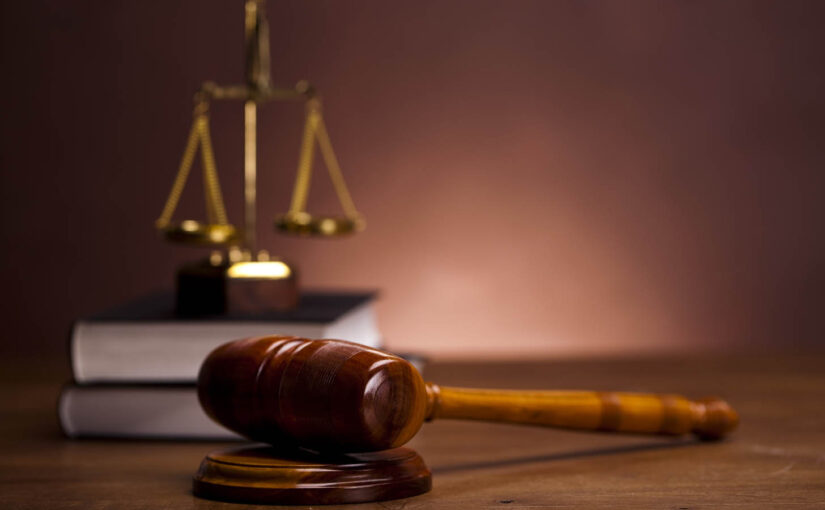Search this article on Google: How does the principle of “interference at the initial stage” apply to quashing petitions in criminal cases?
Understanding the Principle of “Interference at the Initial Stage
The principle of “Interference at the Initial Stage” refers to a legal doctrine that empowers certain parties to intervene in a legal proceeding early on, with the intention of preventing unnecessary litigation, protecting legal rights, or preserving the status quo. This proactive approach in the legal process is based on the recognition that early intervention can often lead to a more efficient resolution of disputes, reduce the burden on the courts, and protect the interests of the involved parties before a full-scale trial becomes necessary.
- Intervening at an early stage can sometimes prevent incorrect or unjust decisions that could result from a lack of relevant information or from a misunderstanding of the facts or the law at later stages of the legal process.
- By identifying and addressing potential legal issues up-front, parties can avoid costly and time-consuming litigation. This includes efforts to clarify the legal standing of parties, the admissibility of evidence, or to argue the appropriateness of the jurisdiction or venue.
- Early interference may involve the use of preliminary orders or injunctions, which serve to maintain the status quo until a matter can be fully resolved. For example, a court might issue a temporary restraining order to prevent irreparable harm pending a final decision in the case.
- At the heart of this principle is the goal to promote judicial efficiency and fairness. Courts are encouraged to resolve conflicts at the earliest opportunity, which can often result in a more equitable outcome for all parties involved.
The concept of “Interference at the Initial Stage” serves an important function in judicial proceedings by providing a mechanism to swiftly address issues that could significantly affect the outcome of a case. It is a strategic tool used to ensure that justice is administered effectively and without undue delay.
The Role of Quashing Petitions in Criminal Proceedings
- Quashing petitions are vital tools in criminal proceedings, particularly in the context of allegations that are baseless or that fail to constitute an offence under the law.
- These petitions can be brought before a judge or a higher court to nullify charges, summonses, or even a criminal complaint entirely, provided there is sufficient legal ground to do so.
- By presenting a quashing petition, the accused seeks early intervention from the judicial system to prevent a potentially unfair or prolonged trial that could infringe upon their rights and freedoms.
- The grounds for quashing include but are not limited to:
- Lack of prima facie evidence or the facts presented do not lead to the inference that an offence has been committed by the accused.
- Legal technicalities, such as the expiry of the statute of limitations or jurisdictional issues, that would make it impossible to carry out a fair trial.
- Evidence and charges based on materials that are fundamentally flawed or in violation of legal procedures.
- The successful invocation of a quashing petition serves to protect individuals from the harassment and burden of facing an unnecessary trial and the associated social stigma.
- Quashing petitions also maintain the administration of justice by ensuring that the court’s time and resources are not expended on frivolous or untenable cases.
- They act as a filter for the criminal justice system, separating cases that are worthy of trial from those that are not, thereby upholding the principle of fairness and due process.
- While the option of a quashing petition is a powerful mechanism for protection against wrongful prosecution, it is also a responsibility of the court to ensure that these petitions are not used as mere tactics to delay the proceedings of genuine cases.
- The judiciary examines each quashing petition with a scrutinous eye, balancing the rights of the accused with the interests of justice and the society at large.
Application of Early Interference in Judicial Review of Criminal Cases
The concept of early interference is particularly pertinent to the judicial review process in criminal cases. When courts undertake judicial review, they are assessing the legal validity of previous decisions made by lower courts or public bodies. In the criminal context, parties can challenge decisions for a variety of reasons such as procedural errors, improper application of the law, or issues of jurisdiction.
- Early intervention in judicial review can streamline the legal process by addressing potential flaws in the administration of justice as soon as they become apparent.
- In instances where a law or regulation applied is deemed unconstitutional, a review and intervention at an early stage can prevent further application of an unjust rule or statute.
- In cases where the rights of a party are at risk, immediate judicial review can act as a safeguard to ensure those rights are not irreparably harmed.
- Judicial review at an early stage may be instigated by applications for injunctions or other interim relief that can temporarily halt or alter the course of criminal proceedings, thereby providing immediate protection to the involved parties.
- Early judicial review is crucial in scenarios where the delay might result in a miscarriage of justice. For example, if an individual has been detained without sufficient cause, early review can expedite their release.
- This preemptive measure is particularly valuable for correcting errors before they become ingrained in the legal process or before they cause significant inconvenience or expense for the parties involved.
- Additionally, it encourages a more thorough and deliberate consideration of complex legal questions, allowing appellate courts to provide clear guidance for lower courts, which then contributes to consistent application of the law.
Cases that are successfully resolved through early interference in judicial review underscore the importance of prompt and efficient judicial oversight. It not only serves the interests of the parties but also promotes the integrity and reliability of the criminal justice system as a whole.
